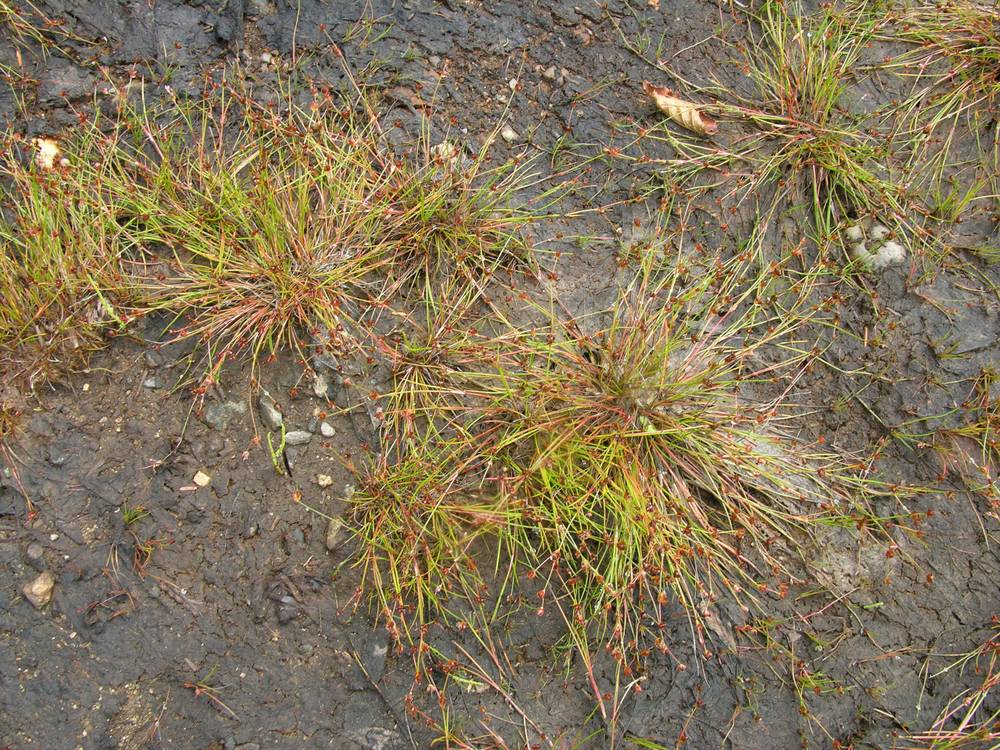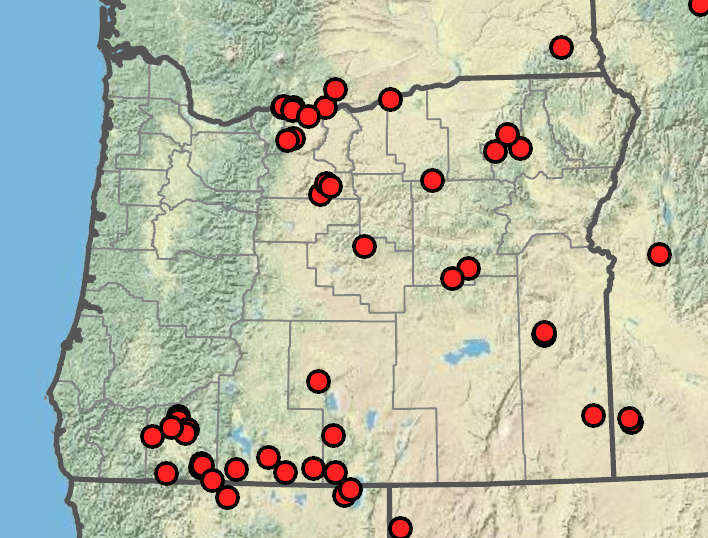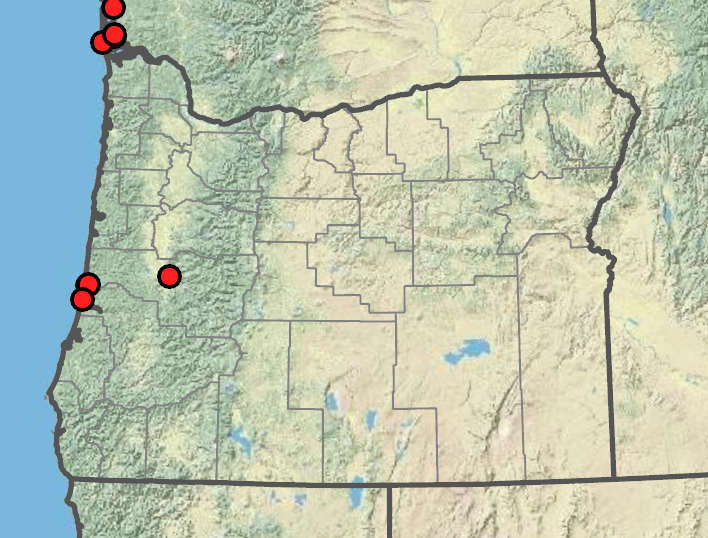Juncus trilocularis
Juncus bulbosus
foothill rush
bulbous rush, spreading rush
thin and wiry;
blade flat and slightly inrolled;
auricles soft and thin distally, 0.3–3 mm; dull, rounded or acute; dirty white.
round; hollow or several-chambered, septate at least in part;
auricles 1–2 mm.
cymes, 2–20 cm, usually open;
bractlets subtending flowers acute to acuminate, often aristate.
open; (2)6–16 clusters; clusters 2–12-flowered;
flowers often forming leafy bulblets.
tepals 6, 3.3–5.1 mm; greenish to pale brown, nearly concolorous;
tips acuminate;
outer tepals distinctly longer than inner tepals;
stamens 6;
filaments 0.5–0.8 mm;
anthers (0.6)0.8–1.7 mm;
styles 0.3–1 mm.
tepals 6, 1.8–3.4 mm, green, red, or brown (dark brown);
inner tepal margins flat;
tips usually blunt, hooded;
stamens (3)6;
filaments 0.6–1 mm; longer than or equaling anthers;
anthers 0.2–0.8 mm;
styles 0.2–0.5 mm.
2.8–4.1 mm; shorter than the tepals, pale brown to dark brown;
apex truncate to notched (acute), crested, 3-chambered.
usually 0.1–0.4 mm longer than or equaling tepals, brown to dark brown, abruptly tapered to apices; blunt or acute, 1-chambered.
0.4–0.6 × 0.2–0.3 mm, apiculate, reticulate.
ellipsoid to ovoid, 0.4–0.6 × 0.2–0.25 mm, apiculate.
=40.
Juncus trilocularis
Juncus bulbosus
Seasonally damp meadows, springs, shores, creek banks, moist open forest, ditches. 300–1900m. BW, Col, ECas, Owy, Sisk, Casc. CA, ID, NV, WA. Native.
This is an uncommon species found east of the Cascade Range and in the Siskiyou Mountains that has long been confused with Juncus brachyphyllus, a plant of grasslands and glades in the Midwest, which occurs no further west than Nebraska.
Damp grassy disturbed ground, lakeshores. 0–50 m. Est. CA, WA; north to British Columbia, northeastern Canada and NY; Australia, Europe, Mauritius, New Zealand. Exotic.
This species is uncommon but can invade natural wetland systems. The capsule is rounded at the tip, differing from the acute to acuminate capsules of J. supiniformis. Juncus supiniformis capsules are more than 1 mm longer than the tepals. Juncus articulatus is coarser and has capsules more exserted than J. bulbosus.
Peter Zika
Peter Zika
- Local floras:
CA,
OR,
WA
- Local Web sites:
CalFlora,
CalPhotos,
Flora NW,
PNW Herbaria
WildflowerSearch
iNaturalist (observations)
USDA Plants Database
- LBJ Wildflower Center
- SEINet
- Plants of the World Online
- Encyclopedia of Life
- Wikipedia
- Google Image Search
- Local floras:
BC,
CA,
OR,
WA
- Local Web sites:
CalFlora,
CalPhotos,
Flora NW,
PNW Herbaria
WildflowerSearch
iNaturalist (observations)
USDA Plants Database
- LBJ Wildflower Center
- SEINet
- Plants of the World Online
- Encyclopedia of Life
- Wikipedia
- Google Image Search


